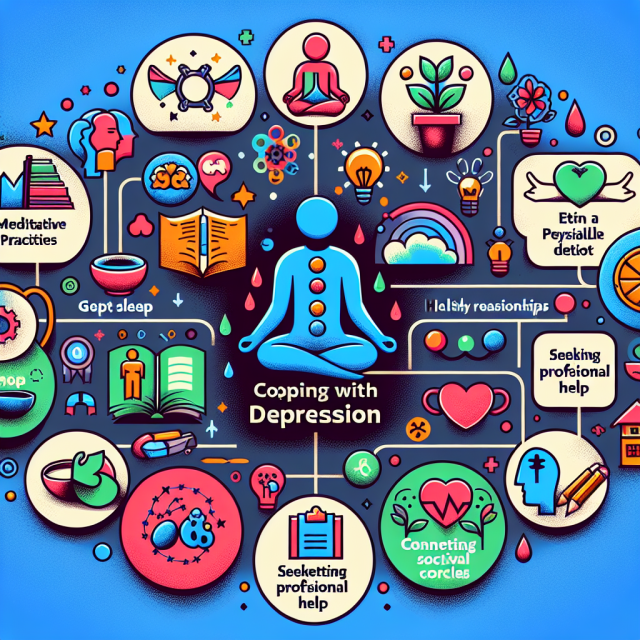
Depression is a common mental health condition that affects millions of people worldwide, yet it remains misunderstood by many. It can manifest as persistent feelings of sadness, hopelessness, and lack of interest in activities once enjoyed. Learning how to cope with depression is crucial for those affected, as it can significantly impact one’s quality of life. This article aims to provide practical tips and support for individuals dealing with depression, helping them navigate their journey towards recovery.
Understanding Depression and Its Impact on Life
Depression is more than just a temporary feeling of sadness or a response to life’s challenges; it is a complex mental health condition that can affect every aspect of an individual’s life. It can alter how a person thinks, feels, and functions in daily activities, such as eating, sleeping, and working. Those suffering from depression often experience a pervasive sense of despair, leading to a lack of motivation and energy. This can result in decreased productivity at work or school, strained relationships, and withdrawal from social activities. Understanding the profound impact of depression is crucial for both those experiencing it and their loved ones, as it fosters empathy and encourages seeking appropriate treatment and support.
Practical Tips for Coping with Depression
Coping with depression requires a multifaceted approach tailored to an individual’s unique needs and circumstances. One effective strategy is establishing a routine that includes regular physical activity, as exercise has been shown to release endorphins, which can improve mood. Maintaining a balanced diet and ensuring adequate sleep are also vital components of managing depression. Additionally, setting small, achievable goals can help individuals regain a sense of control and accomplishment. Engaging in activities that bring joy, whether it’s a hobby or spending time with loved ones, can provide a much-needed emotional boost. Importantly, practicing mindfulness and stress-reduction techniques, such as meditation or yoga, can help individuals manage negative thoughts and emotions more effectively.
Seeking Support and Building a Support Network
Having a strong support network is essential for individuals coping with depression. Reaching out to friends and family members for emotional support can provide comfort and encouragement. However, it’s also important to seek professional help when needed. Therapists and counselors can offer guidance and coping strategies tailored to the individual’s situation. Joining support groups, either in-person or online, can also be beneficial, as connecting with others who are experiencing similar challenges can reduce feelings of isolation. Building a support network requires openness and communication, but the rewards of feeling understood and supported are invaluable in the journey toward recovery.
Coping with depression is a challenging but manageable endeavor when armed with practical strategies and a robust support system. By understanding the impact of depression, implementing effective coping mechanisms, and fostering a supportive network, individuals can navigate their way toward healing and improved mental health. It’s important to remember that recovery is a journey, not a destination, and seeking help is a sign of strength, not weakness. With the right tools and support, those affected by depression can work towards reclaiming their lives and finding hope and happiness once again.





